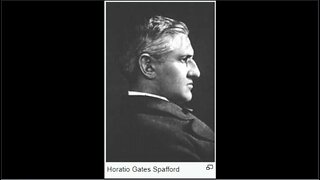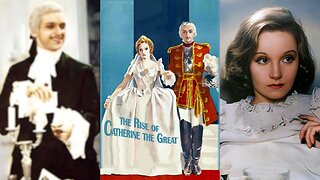Caroline Elizabeth Sarah Norton -"I DO NOT LOVE THEE". Read by Liz Langerak. Music - Jules Massenet.
This video was made using MAGIX Movie Edit Pro MX Plus.
The Music on this video was composed by Jules Massenet - Meditation from Thais - Yo Yo Ma on Cello and Kathryn Stott on Piano.
Caroline Elizabeth Sarah Norton, Lady Stirling-Maxwell (née Sheridan; 22 March 1808 – 15 June 1877) was an active English social reformer and author. She left her husband, who was accused by many of coercive behaviour, in 1836. Her husband then sued her close friend Lord Melbourne, then the Whig Prime Minister, for criminal conversation (adultery).
Although the jury found her friend not guilty of adultery, she failed to gain a divorce and was denied access to her three sons due to the laws at the time which favoured fathers. Norton's campaigning led to the passage of the Custody of Infants Act 1839, the Matrimonial Causes Act 1857 and the Married Women's Property Act 1870. She modelled for the fresco of Justice in the House of Lords by Daniel Maclise, who chose her as a famous victim of injustice.
Caroline Norton was born in London to Thomas Sheridan and the novelist Caroline Henrietta Callander. Her father was an actor, soldier and colonial administrator, the son of the prominent Irish playwright and Whig statesman Richard Brinsley Sheridan and his wife Elizabeth Ann Linley. Caroline's Scottish mother was the daughter of a landed gentleman, Col. Sir James Callander of Craigforth and Lady Elizabeth MacDonnell, sister of an Irish peer, the 1st Marquess of Antrim.[ Mrs. Sheridan authored three short novels described by one of her daughter's biographers as "rather stiff with the style of the eighteenth century, but none without a certain charm and wit...."
In 1817, her father died in South Africa while serving as colonial secretary at the Cape of Good Hope. His family was left almost penniless. Prince Frederick, Duke of York and Albany, an old friend of her grandfather, arranged for them to live at Hampton Court Palace in a "grace and favour" apartment for several years.
The combined beauty and accomplishments of the Sheridan sisters led to their being collectively referred to as the Three "Graces". The eldest, Helen, was a songwriter who married Price Blackwood, the 4th Baron Dufferin and Claneboye. Through her, Caroline became the aunt of Frederick Hamilton-Temple-Blackwood, 1st Marquess of Dufferin and Ava, later the third Governor General of Canada and eighth Viceroy of India. Her younger sister, Georgiana, seen as the prettiest, later married Edward Seymour, 12th Duke of Somerset.
In 1827, she married George Chapple Norton, barrister, Member of Parliament for Guildford, and the younger brother of Lord Grantley. George was a jealous and possessive husband given to violent fits of drunkenness. The union quickly proved unhappy due to his mental and physical abuse. To make matters worse, George was unsuccessful as a barrister, and the couple fought bitterly over money.
During her early married years, Caroline used her beauty, wit and political ties to set herself up as a major society hostess. Her unorthodox behaviour and candid conversation raised many eyebrows in 19th-century English high society; she made enemies and admirers in almost equal measure. Among her friends were literary and political luminaries such as Samuel Rogers, Edward Bulwer-Lytton, Edward Trelawny, Abraham Hayward, Mary Shelley, Fanny Kemble, Benjamin Disraeli, the future King Leopold I of Belgium and William Cavendish, 6th Duke of Devonshire. She also claimed in later life to have taken part in the Tolpuddle Martyrs protest march in 1834.
Despite his jealousy and pride, George encouraged his wife to use her ties to advance his career. It was through her influence that in 1831 he was made a Metropolitan Police Magistrate. During these years, Caroline turned to prose and poetry as means of releasing her inner emotions and earning money. Her first book, The Sorrows of Rosalie (1829), was well received. The Undying One (1830), a romance founded on the legend of the Wandering Jew, soon followed.] From 1832 to 1837, she edited The Court Magazine and Belle Assemblée. In 1843, she petitioned Sir Robert Peel for the post of Poet Laureate after the death of Robert Southey, but was unsuccessful.
Separation and Melbourne scandal
In 1836, Caroline left her husband. She managed to subsist on her earnings as an author, but George claimed these as his, arguing this successfully in court. Paid nothing by her husband and her earnings confiscated, Norton used the law to her own advantage. Running up bills in her husband's name, she told the creditors when they came to collect, that if they wished to be paid, they could sue her husband.
For a more complete biography of Caroline Elizabeth Sarah Norton, please see her Wikipedia page at https://en.wikipedia.org/wiki/Caroline_Norton
-
 3:51
3:51
Afrikitty
7 months ago"IT IS WELL WITH MY SOUL" written by Horatio G. Spafford. Spoken by Elizabeth Ann Langerak.
13710 -
 3:46
3:46
Leomont83
1 year agoRecitation HYMN TO LOVE by Lascelles Abercrombie (Manchester, UK, 1881-1938, London, England)
87 -
 4:33:25
4:33:25
Chesterton Radio
2 years ago $0.02 earned"More" Radio - Drama Collection
469 -
 1:33:07
1:33:07
Lost n Found Films
5 months agoTHE RISE OF CATHERINE THE GREAT (1934) Douglas Fairbanks Jr. & Elisabeth Bergner | Drama | B&W
514 -
 1:45
1:45
Leomont83
1 year agoRecitation TO MY DEAR AND LOVING HUSBAND by Anne Bradstreet (UK, 1612-1672, USA)
140 -
 1:16:15
1:16:15
Motivatezone.com
1 year agoLiving on Half a Dime a Day by Sarah Elizabeth Harper MONMOUTH | Full Audio Book
85 -
 1:28
1:28
Leomont83
1 year agoRecitation of STANZAS FOR MUSIC by Lord Byron (London,UK, 1788-1824, Missolonghi, Greek),
556 -
 57:10
57:10
The Audible Wiki Factory
1 year agoElizabeth I was Queen of England and Ireland from 17 November 1558 until her death in 1603
315 -
 1:27
1:27
Leomont83
1 year agoRecitation of THE BRAIN IS WIDER THAN SKY by Emily Dickinson (Amherst, Massachusetts, 1830-1886)
65 -
 1:28:17
1:28:17
Marie Speaks G-D's Grace
5 months agoWhat Marie Likes: Books, Abundance by Sena Jeter Naslund. Is Lady Liberty astare?
85